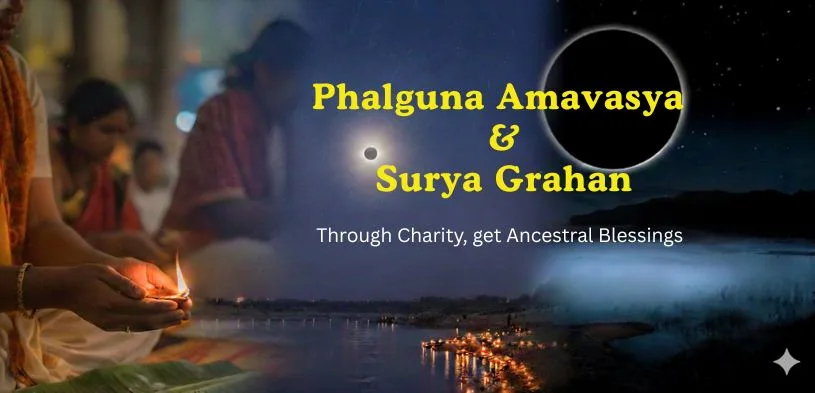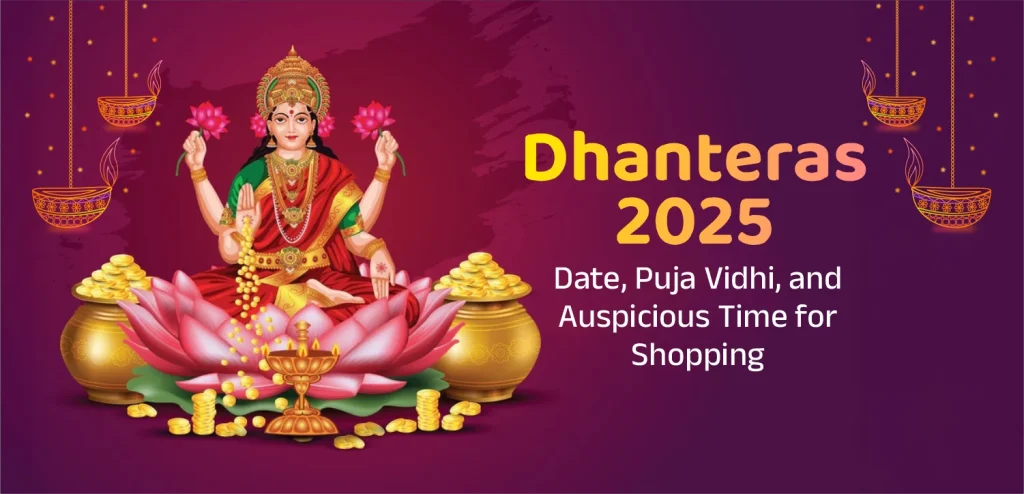Dhanteras is the first day of the Diwali festival, celebrated on the third day of the Kartik month. This day is considered to be a special occasion to get wealth, health and wealth along with shopping. Worshiping Lord Dhanvantari, Mother Lakshmi and Lord Kubera on this day brings happiness, prosperity and a healthy body in life.
Dhanteras is considered the most sacred festival in Hindu scriptures. It is believed that whoever worships and buys with devotion on this day, the wealth in his house increases thirteen times. This is the reason why people consider it mandatory to buy new utensils, gold and silver, and other auspicious items on this day.
When is Dhanteras 2025?
This year the Trayodashi Tithi of Krishna Paksha in the month of Kartik falls on October 18. The auspicious time will start on October 18 at 12:18 PM and end on October 19 at 01:51 PM. According to Drik Panchang, this year the festival of Dhanteras will be celebrated on October 18.
Manifestation Day of Lord Dhanvantari
On the day of Dhanteras, Lord Dhanvantari is worshiped. Lord Dhanvantari is considered the divine physician of the gods. He is the pioneer of Ayurveda. Ayurveda is the science of holistic lifestyle and health along with disease prevention. It is narrated in the Puranas that when the gods and asuras churned the sea, Lord Dhanvantari appeared with a pot of nectar.
He had an urn of nectar in one hand and medicinal herbs in the other. This form even today makes them a symbol of health and immortality. Worshiping Lord Dhanvantari on Dhanteras destroys diseases and sorrows in life and ensures longevity, health and peace in the family.
Importance of Worship on Dhanteras
On this day, the house is purified by bathing in the morning, and lamps are lit in the evening. Lord Kubera is duly worshipped. It is believed that Lord Kubera is considered to be the protector of wealth, so worshiping him on this day leads to inexhaustible wealth in life.
Also, Goddess Lakshmi is worshiped by offering lamps, flowers and offerings. A lamp entering the house destroys darkness and negativity and brings happiness and prosperity to the family.
Time for shopping in Dhanteras
The best time for shopping on Dhanteras is from 7:11 AM to 8:35 PM. Also Abhijeet Muhurta from 12:01 PM to 12:48 PM and Labh-Unnati Chowgharia from 1:51 PM to 3:18 PM are also considered to be very fruitful. At this time, if you buy gold and silver, utensils or idols of gods and goddesses, then Lakshmi’s grace, wealth and good fortune increase in the house.
Auspicious Time and Method of Dhanteras Pujan
This year the best time for worship on Dhanteras is from 7:44 PM to 8:41 PM. Worship Lord Dhanvantari, Goddess Lakshmi and Lord Kubera at this time. Clean the place of worship before worship. Place a red or yellow cloth on a post and install images or pictures of Lord Dhanvantari, Mata Lakshmi and Kuberji on it. Keep utensils, gold and silver coins, ornaments, etc.
First, light the lamp. Offer fruits, flowers, sweets and coriander seeds to God, which are considered symbols of wealth. Listen to the story of Dhanteras with devotion after the pooja. At the end do aarti and ask God for blessings of healthy life and happiness.
Shop these things on Dhanteras
When you mention the name of Dhanteras, the first thing that comes to mind is the tradition of shopping. This tradition exists among the people as a religious belief.
Gold and Jewelry: Gold is a symbol of purity and wealth. Buying gold on this day is considered to be a sign of Lakshmi’s arrival at home.
Silver objects: Silver is a symbol of power and purity. Silver coins, utensils and idols remove negative energy and bring good luck to the home.
New Utensils: It is a tradition to buy new utensils and bring them home on this day. It is believed that the use of new utensils brings the blessings of Goddess Lakshmi.
Idols of Lord Ganesha and Goddess Lakshmi: It is considered very auspicious to bring idols of Lakshmi-Ganesha into the house on this day. These idols are worshiped on the night of Diwali.
Buying a broom: Few people know, but buying a broom on this day is also auspicious. It is said that a broom removes poverty from the house and pleases Goddess Lakshmi.
Don’t buy these things
Shopping on the day of Dhanteras is important, but the scriptures also prohibit buying certain items on this day.
Glass vessels: Glass is considered to be associated with Rahu, which attracts negative energy. Oil and Ghee: Buying these items on this day is considered inauspicious.
Black-colored objects: It is considered a symbol of negativity.
This festival of Dhanteras gives us an opportunity to cultivate wealth, health and prosperity. On this auspicious occasion, we all pray to Lord Dhanwantari to grant us a healthy life and health; may Goddess Lakshmi bless us with wealth and prosperity forever, and may Lord Kuber shower us with good fortune and prosperity in our lives.







